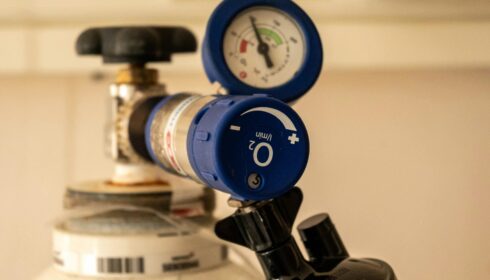EVALD

Prolonged targeted temperature management reduces memory deficits at six months post-cardiac arrest: A randomised controlled trial
Evald. Resuscitation 2019;134(1-9) doi: 10.1016/j.resuscitation.2018.12.002
Clinical Question
- In patients that survive with a good neurological outcome following out-of-hospital cardiac arrest, does 48 hours vs. 24 hours of therapeutic hypothermia, improve memory, attention & executive functions at 6 months?
Background
- Cognitive sequelae are frequent in survivors of out-of-hospital cardiac arrest. Memory is the most common cognitive domain that is affected
- Targeted temperature management (TTM) has been shown to decrease mortality and improve cognitive function. The optimal duration of TTM is unclear
- The TTH48 trial reported no significant difference with 24 hours vs. 48 hours of hypothermia in terms of cerebral outcome or mortality at 6 months
- Hypothermia studies, including the TTH48 trial, typically use crude measures of outcome such as Cerebral Performance Category (CPC score). More subtle differences may therefore be missed
Design
- Predefined post-hoc study of the randomised open-label TTH48 trial
- Patients invited to neuropsychological assessment of memory, attention, executive function at 6 months
- Blinding of outcome assessor
- Estimate of pre-morbid intelligence assessed by WAIS-IV Vocabulary test to control for pre-morbid level of cognitive function
- 13 cognitive tests assessed. Patient considered to be cognitively impaired if their performance was below the cut-off score for 3 or more tests
Setting
- Two university hospitals in Denmark & Norway (Original TTH48 trial included 10 units)
- Original TTH48 trial conducted from 2013-2016
Population
- Inclusion criteria:
- Enrolled in TTH48 trial
- Good cognitive function prior to cardiac arrest: CPC score <=2
- Good cognitive outcome at 6 months: CPC score <=2
- Exclusion: as per TTH48 trial
- 79 patients included in the study out of 111 eligible patients. 355 patients were originally enrolled in TTH48 study
- No significant differences between intervention and control groups, or between study participants and patients lost to follow up:
- Comparing TTM24 (n=36) vs. TTM48 (n=43):
- Male: 94% vs. 86%
- CPC 1: 81% vs. 70%
- Basic CPR: 86% vs. 91%
- Shockable rhythm: 94% vs. 95%
- Age: 58 vs. 57
- Minutes to ROSC: 18 vs. 18
- Days since OHCA: 187 vs. 188
- Vocabulary (WAIS-IV): 27 vs. 31
- Comparing TTM24 (n=36) vs. TTM48 (n=43):
Intervention
- Prolonged TTM for 48 hours
Control
- Standard TTM for 24 hours
Management common to both groups
- Temperature controlled to 33C+-1C
Outcome
- Unadjusted multivariate regression, comparing control group vs. intervention group treatment effect (positive treatment effect number indicates improved outcome in TTM48 group, except for trail making tests where negative number indicates improved outcome in TTM48 group):
- No significant difference in:
- Attention
- Trail making A: 49.24 vs. -3.85
- Trail making B: 120.15 vs. -12.75
- Digit span: 22.89 vs. 0.20
- Executive function
- Fluency phonemic: 28.06 vs. 2.13
- Fluency semantic: 35.23 vs. 1.91
- Fluency categoric: 11.17 vs. 0.92
- Attention
- Verbal memory – RAVLT: auditory verbal memory retrieval of 15 words
- RAVLT learning – no significant difference
- 34.63 vs. 2.01
- RAVLT recall 30 min – significantly improved in TTM48 group
- 4.83 vs. 1.94, p=0.0004
- NNT 4.1 (95% C.I. 2.7-12)
- RAVLT recognition – no significant difference
- 10.70 vs. 0.92
- RAVLT learning – no significant difference
- Visual memory – ROCFT: visual memory retrieval of a complex figure
- ROCFT copy – no significant difference
- 32.91 vs. -0.15
- ROCFT recall 3 minute – significantly improved in TTM 48 group
- 13.78 vs. 3.16, p=0.0032
- NNT 5.9 (95% C.I 3.2-infinity)
- ROCFT recall 30 minutes – significantly improved in TTM 48 group
- 13.81 vs. 2.9, p=0.0048
- NNT 6.3 (95% C.I. 3.2-infinity)
- ROCFT recognition – no significant difference
- 19.83 vs. 0.10
- ROCFT copy – no significant difference
- No significant difference in:
- Multi-variate regression analysis adjusted for age and time to ROSC revealed slightly stronger association of TTM48 with significant differences in the same 3 memory tests
- Overall cognitive impairment – significantly greater in TTM24 group
- 33% vs. 12%, relative risk ratio 2.9 (95% C.I. 1.1-7.4), NNT 4.6
Authors’ Conclusions
- In patients with perceived good cognitive outcome, 48 hours of therapeutic hypothermia was associated with reduced memory deficits and cognitive impairment at 6 months, compared with 24 hours of therapeutic hypothermia
Strengths
- Blinding of outcome assessor
- Controlled for level of pre-morbid cognitive function
- Pre-defined analysis of randomised controlled trial
- Multi-centre
- Patient orientated outcomes
Weaknesses
- Post-hoc analysis
- Nearly 30% of patients lost to follow up
- Small numbers in each group
- Only included patients with perceived good cognitive outcome
- Although not statistically significant, patients in TTM24 group were less likely to participate in the study, and had a higher rate of a CPC 1 score
- Multiple cognitive tests assessed with no primary outcome – increased probability of type 1 error
- ROCFT recognition trial had a number of missing values
- Only 2 institutions completed this study out of the 10 that were included in the TTH48 trial
The Bottom Line
- This pre-planned post-hoc analysis of the TTH48 trial, reported that in patients with an out of hospital cardiac arrest who were treated with 48 hours of therapeutic hypothermia vs. 24 hours had significantly reduced memory deficits at 6 months
- Due to the methodological weaknesses further trials are warranted before this becomes standard practice
- Future trials assessing cognitive function post cardiac arrest should, as this trial did, include more detailed assessments than CPC scores
External Links
- [article] Prolonged temperature management reduces memory deficits at 6 months post-cardiac arrest: A randomised controlled trial
- [further reading] Targeted Temperature Management for 48 vs 24 Hours and Neurological Outcome After Out-of-Hospital Cardiac Arrest
Metadata
Summary author: Dave Slessor
Summary date: 15 April 2019
Peer-review editor: Fraser Magee



